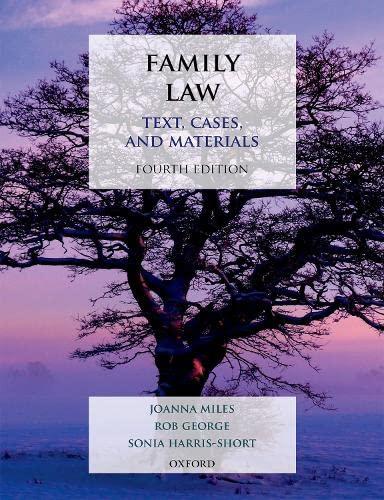Question
CASE SCENARIO Peter Daniel moved permanently to Australia 5 years ago. He had always wanted to run a small business in Australia. Unfortunately, for the
CASE SCENARIO
Peter Daniel moved permanently to Australia 5 years ago. He had always wanted to run a small business in Australia. Unfortunately, for the last five years, he had not been able to set up his business as he was very busy trying to finish his accounting degree. This year, Peter finally decided to take the risk and open a coffee shop in Melbourne. Peter is interested in the hospitality industry. When he was doing his accounting degree, he had the opportunity to complete a short course to be certified as a coffee barista but because he was too busy finishing his degree, he decided to make after later on.
When Peter, opened his coffee shop, he advertised lattes with a large sign that read "Buy a latte for $5 dollars and get a mini brownie for free". One day, on her way to work Gemma, a legal practitioner who works nearby went to Peter's coffee shop to get a coffee. Gemma wanted to try a new coffee shop in the area. She had heard from one of her colleagues that there was a new coffee shop nearby giving mini brownies free with a latte. So, she decided to give it a go. She ordered and paid for a takeaway latte for $5 dollars expecting that she will get a mini brownie for free. Peter, made the coffee extra hot without froth. He gave it to her in a take-away coffee cup.
Gemma thanked Peter for the coffee and said to Peter "I hope it's good coffee because I am very fussy". Peter said, "Of course it's good you will love it". Gemma realised that something was missing so she asked Peter for the free mini brownie. Peter told her "Sorry, we ran out of mini brownies, but we have large brownies which are $8 dollars. Gemma did not want a big brownie because she was on diet, but she thought after all, a brownie is a brownie and she can never say no to a brownie, so she paid for it. On her way back to the office, she drank her coffee, but it was too hot.
Unfortunately, she burnt her throat which made it difficult to talk. She took the lid off her coffee cup and realised that it was not a latte. Peter had given her an extra hot flat white coffee instead of a latte. Later that morning, she was scheduled to run an important conference on Contract and Consumer Law. Unfortunately, she had to cancel the conference as it was too difficult for her to talk. The consequence of the cancellation was that she would not be able to claim her $10,000 fee. The organisers of the conference had spent $25,000 promoting the conference. Gemma was very upset that she could not run the conference that she had been working on for a long time. Not only had she lost the $10.000 fee, but she had also had to spend $1,000 dollars in medical bills.
One week later, she received a letter of demand from the conference organisers asking her to reimburse them the $25,000 that they had spent on promoting the conference. Now Gemma is "stressed out!" After two weeks, Gemma went back to the office and one of her colleagues started to complain about Peter's coffee shop. Her colleague told her that the owner of that coffee shop was very dishonest. He advertises Lattes for $5 dollars with a mini brownie for free, but he only makes large brownies and he always tells his customers that he ran out of mini brownies and convinces them to buy the large brownie for $ 8 dollars.
On top of this, Peter makes terrible coffee. He always makes flat white's instead latte's and these are always extra hot, even though the coffee cup lid says hot not extra hot. Gemma started to get very suspicious about Peter's coffee shop and his business practices. She still has the receipt when she bought her coffee. Gemma knows a savvy law student who understands Australian Law so she wants this student to assist her in exercising her rights under Australian Contract and Consumer Law.
QUESTION 1 (answer with IRAC method)
Please advise Gemma, if she entered in a contract with Peter and explain if this contract can be invalidated under the principles of Contract Law.
In your answer explain the meaning of Contract and which elements need to be satisfied in order to make a simple contract and how to identify if this contract is a valid contract.
You will need to address all the "essential elements of a contract" including (Offer and acceptance, intention and consideration) as well as "elements of a valid contract" (Capacity, Legality, Genuine Consent, Mistake, Misrepresentation, Durres, Undue Influence and Unconscionability.
You will need to address and explain if Gemma can invalidate the contract. You will also need to address and explain what sort of remedies she will be entitled if she decides to void the contract
Step by Step Solution
There are 3 Steps involved in it
Step: 1

Get Instant Access to Expert-Tailored Solutions
See step-by-step solutions with expert insights and AI powered tools for academic success
Step: 2

Step: 3

Ace Your Homework with AI
Get the answers you need in no time with our AI-driven, step-by-step assistance
Get Started


